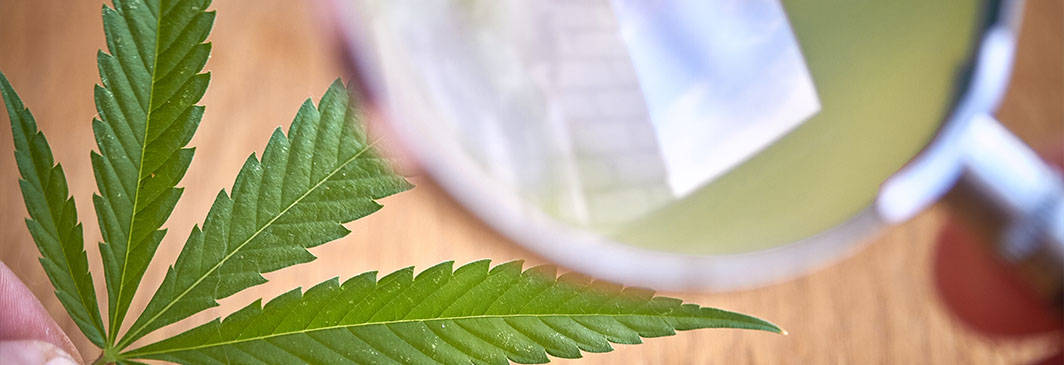As a cannabis connoisseur, you’ve probably wondered just how long the THC from that vape pen or gummy edible sticks around in your system. After all, even though the effects of a high fade away after a few hours, the actual THC can be detected in your body for much longer than that.
We’ve outlined everything you need to know about THC in your system, from estimated time frames to the scientific scoop on how and why THC interacts with your body.
How Long Does THC Stay in Your System?
The answer? It depends. We know, we know — but let us explain. The way that THC interacts with your body is a complex chemical process that can be influenced by a lot of factors, meaning that the actual time period that THC can be detected in your body is different for everyone.
However, there are some factors that can give you a good estimate. For example, someone who regularly uses marijuana or uses it heavily will have detectable THC in their system for much longer than someone who rarely consumes cannabis or only takes a few puffs. Your age, metabolism and BMI can also affect how long you’ll test positive on a drug test.
In general, THC can be detectable in your blood or saliva for a few hours, and in hair or urine for up to 90 days. If it’s important for you to know the exact time period, talking to a trusted health care provider can help give you a more definite answer based on your body type and lifestyle.
THC Vs. THC-COOH
When you ingest marijuana, THC is metabolized by your body and broken down into different components. Many drug tests don’t actually register THC, but rather THC-COOH, which is created by the liver as it processes THC. THC-COOH is stored in the fat lipids of the body, which is why it can be registered on tests for much longer than THC can be. If you’re a regular or heavy user of marijuana, then there’s a lot more THC-COOH stored in your fat tissue, meaning it’ll show up on tests on the longer end of the timeline.
How THC Interacts With Your Body
Now that you have a general idea for how long THC stays in your system, you’re probably wondering about how exactly it interacts with your system in the first place. THC, or Tetrahydrocannabinol, is a cannabinoid, which is a chemical compound that can be found in the resin of a marijuana bud. THC interacts with your body’s endocannabinoid system to create the euphoric high sensation that marijuana is so famous for.
When you ingest marijuana, the THC compounds bind to your body’s CB1 and CB2 receptors inside your brain and nervous system. They can create many different effects, from sleepiness to hunger and pain reduction. What you experience is dependent on the strain and potency of the marijuana you’re using. A budtender is a great help for finding the perfect type of marijuana for your lifestyle.
Do Different Products Produce Different Highs?
When ingesting marijuana, you can experience different types of “highs” based on the strain you’re using. Marijuana is typically sorted into three different categories:
- Indica, which creates a relaxing experience that can promote sleep;
- Sativa, which is responsible for the energizing, “head high” experience, and
- Hybrids, which create a sensation that’s a blend of the two other types.
These are generally used categories, though a lot of dispensaries are moving to more nuanced methods of sorting the different strains. Doing online research and talking to the budtenders at your local dispensary are great ways to narrow down your search and find the perfect product for your goals and habits.
How Long Does a High Last?
In general, a high can last anywhere from two to 10 hours, but is influenced by a wide range of different factors, including what method of ingestion you’re using. These can include:
- Smoking or vaping. Because THC enters the bloodstream quickly when inhaled, you can expect to feel the effects of cannabis within a few minutes. Typically, you can expect this type of high to last for a few hours.
- Edibles. Since edibles need to be metabolized by your body, it can take up to two hours for the effects to be felt. This also means the high itself can last up to 24 hours.
- Dabbing. A highly concentrated form of smoking, dabbing effects occur almost instantly. The effects can stick around for almost 24 hours.
Of course, consumption method is only one factor in the experience of a high. Some other things that can influence your high include:
- Whether or not you’ve eaten
- Your tolerance level
- Your body weight
- Your metabolism
Potency is also a big factor in your experience (and how long it sticks around in your system.) Strains with high concentrations of THC will have a stronger effect and will show up on tests for longer than ones with lower concentrations.
It’s always a good idea to talk to a trusted budtender at your local dispensary, as well as your health care provider, if testing positive due to marijuana use can affect your life in a negative way. They’ll be able to recommend products and strains that support your lifestyle — and if you’re using marijuana for medical purposes, you can look into getting a medical marijuana card.
Knowing how long cannabis stays in your system is an important part of responsible marijuana use. Once you have a good idea about the different products and strains, you’ll be able to make informed decisions that you can feel confident about.


